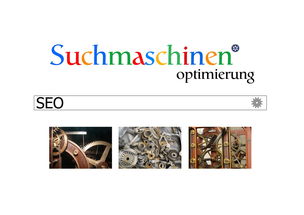When it comes to search engine optimization (SEO), every detail matters, and the website title is no exception. A website's title is not only a crucial on-page element but also plays a significant role in how search engines understand your content and how users perceive your site. If you're considering changing your website's title, it's essential to understand the potential effects on your SEO ranking and how to approach the process for optimal results.
Firstly, let's clarify what we mean by a website title. It's the clickable headline that appears in search engine results pages (SERPs) and is often displayed on Browser tabs. This title should be concise, descriptive, and contain keywords relevant to your site's content and user intent.
Now, let's dive into the impact of modifying your website title:
1、Immediate Change in SERPs: Search engines are constantly crawling the web, so making changes to your title tags can quickly affect how your site is presented in search results. If done correctly, an updated title can lead to improved click-through rates from users seeing more relevant or compelling titles.
2、Potential for Temporary Ranking Fluctuations: Changing your title may cause short-term fluctuations in your search rankings. While these are typically temporary, it's essential to ensure that other SEO elements on your site remain strong to mitigate any negative effects.

3、User Engagement: A well-crafted title can significantly enhance user engagement. If your new title better aligns with what users are searching for, you may see increased time on site, lower bounce rates, and more conversions.
4、Keyword Optimization: If your old title wasn't optimized for specific keywords or phrases, updating it to include them could improve your visibility for those terms. However, stuffing your title with keywords can harm your SEO, so focus on creating a natural and user-friendly headline.
5、Brand Image and Recognition: Your website title is part of your brand identity. Updating it can refresh your brand image and make it more recognizable to both users and search engines.
To optimize the process of changing your website title for SEO purposes, follow these steps:
- Research Keywords: Before making any changes, research the keywords you want to target. Ensure they are relevant to your content and that there is a demand for them.
- Analyze Your Current Title: Review your current title to see what's working and what's not. Check your analytics to understand user behavior related to your current title.
- Craft a New Title: Create a new title that is clear, concise, and includes your targeted keywords naturally. Make sure it accurately reflects the page's content and appeals to your audience.
- Test Your New Title: Use tools like Google AdWords Keyword Planner or SEO software to check the performance potential of your new title.
- Update Your Title Tags: Once you've finalized your new title, update your title tags across your site. Remember that each page should have a unique title that accurately describes its content.
- Monitor the Results: After making changes, closely monitor your site's performance using tools like Google Analytics. Keep an eye on rankings, click-through rates, and user engagement metrics.
In conclusion, changing your website title can indeed affect your SEO ranking, but with careful Planning and execution, it can lead to improved visibility and user engagement. Always prioritize user experience and create titles that provide value and relevance to your target audience. By doing so, you can positively impact your SEO ranking and drive more traffic to your site.
评论列表 (0条)